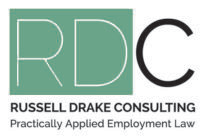Almost all lists of actions that may constitute potential serious misconduct contained the statement “Failure to follow fair and reasonable lawful instructions” – however it often becomes subjective as to what this actually means.
For one employer an employees continued use of inappropriate language in the workplace after having been spoken to may constitute a breach of a lawful instruction, while another employer may consider the same behaviour less severe.
The first element to therefore be considered in making any decision is based on what expectations are set by the employer (for all staff not just the one at the centre of the concern) and how rigorously the employer enforces these expectations. The second element to be considered is that, based on the nature of the business, is the expectation or instruction reasonable (i.e. restrictions on the use of colourful language in a childcare centre vs the use of the same language on a building site) and thirdly, what evidence exists to confirm that the employee has previously been advised as to the nature of the concerns, the required corrective actions, and the potential consequences if these expectations are not met.
Two recent cases within the Employment Relations Authority found that an employer could deem that persistent breaches of fair and reasonable lawful instructions can amount to a valid serious misconduct finding.
The two cases specifically identified that staying off a personal cell phone during work hours and not wearing the required uniform, after receiving corrective instructions, was sufficient basis for an employer to dismiss an employee from their employment. However, it was also important to note that in both cases, upon being confronted by the employer regarding the ongoing non-compliance, both employees yelled, used inappropriate language and showed defiance towards their employers. In addition, during the disciplinary process, both employees failed to provide any valid explanations as to why they had not followed the instructions. The written determination of the authority in both cases also reinforces that both employees failed to reflect on their actions.
In supporting the respective employer’s position in dismissing the employees the authority reinforced that both company’s had robust policies outlining what actions constituted serious misconduct and therefore it was within the scope of the companies to consider that the alleged actions did amount to serious misconduct.
Failing to follow fair and reasonable lawful instructions therefore cannot be determined solely on the basis of what is stated within the serious misconduct list but must be supported by a range of other considerations including the levels of defiance being exhibited by the employee, the evidence available to confirm that clear instructions have been reinforced and the consistency of application of these expectations by the employer.
It is however worthy to note that within one of the cases referenced, although the Authority rejected the employee’s claim of unjustified dismissal, the employee was successful in their claim of Unjustified Disadvantage because of other errors in the employer’s disciplinary processes.
If you are progressing through a formal disciplinary process that has the potential to result in the termination of an employee for failing to follow instructions (or other similar allegations) and you are uncertain as to whether your decision would be upheld if challenged, please feel free to contact us directly before any final decisions are made in order have the facts independently reviewed. Seeking advice may assist in avoiding costly challenges at a later date.
Please see full details of the referenced cases on the following links:

